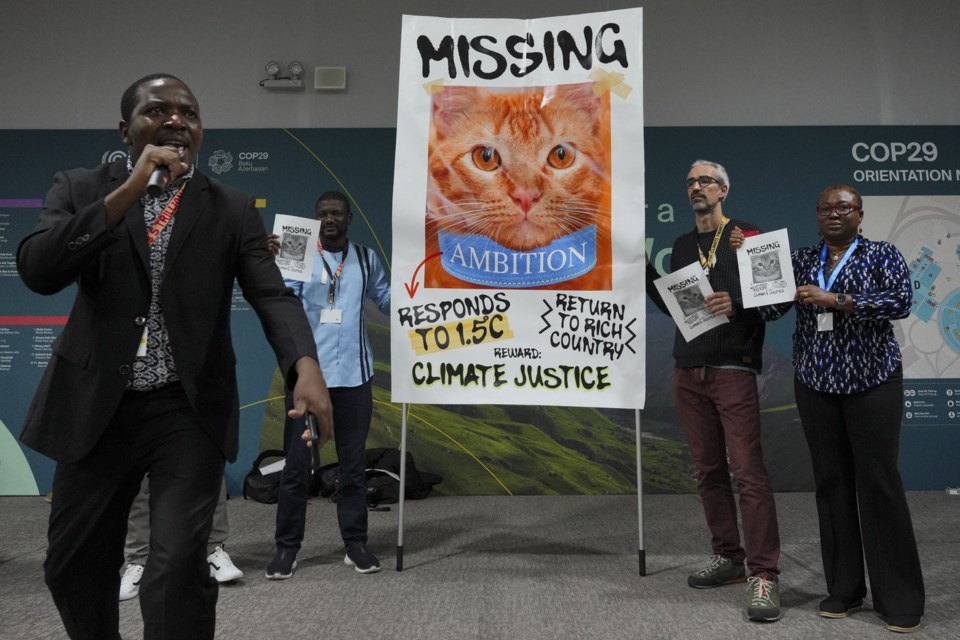BAKU, Azerbaijan (AP) — A new draft text released early Thursday which will form the basis of any deal reached at United Nations climate talks on money for developing countries to transition to clean energy and adapt to climate change left out a crucial sticking point: how much wealthy nations will pay.
Negotiators at the talks — known as COP29 — in Baku, Azerbaijan, are trying to close the gap between the $1.3 trillion the developing world says is needed in climate finance and the few hundred billion that richer nations have been prepared to pay.
But the draft text "presents two extreme ends of the aisle without much in between," said Li Shuo, Asia Society Policy Institute Director. “Other than capturing the ground standing of both sides, this text hardly does anything more.”
Rob Moore, Associate Director at European think tank E3G said that “negotiators need to make a huge amount of progress over the next few days and the road to agreement will need to see rapid and candid engagement, with numbers on the table.”
The lack of numbers in the draft text could be a “bluff," said Linda Kalcher, of the think tank Strategic Perspectives. The COP29 presidency, which prepares the texts “should know more ... than what they put on the table,” she said. She added that the draft reveals that developed nations are still keeping their cards close to their chest.
There are three big parts of the issue where negotiators need to find agreement: How big the numbers are, how much is grants or loans, and who contributes.
Official observers of the talks from the International Institute of Sustainable Development who are allowed to sit in on the closed meetings reported that negotiators have now agreed on not expanding the list of countries that will contribute to global climate funds — at least at these talks. Kalcher said on the question of grants or loans, the draft text suggests “the need for grants and better access to finance.”
Earlier on Wednesday, lead negotiator Yelchin Rafiyev said the latest version of the climate finance text released would be far from final but will be clear step forward. But experts said Thursday that a deal is still a long way off, and the summit appeared headed toward the same drama and overtime finish as seen in previous years.
Iskander Erzini Vernoit, director of Moroccan climate think-tank Imal Initiative for Climate and Development, said that some developed nations “are slowly waking up” to the fact that keeping warming to below 1.5 degrees Celsius (2.7 degrees Fahrenheit) above pre-industrial times will require over a trillion dollars in finance. "But many are still asleep at the wheel,” he said.
___
The Associated Press’ climate and environmental coverage receives financial support from multiple private foundations. AP is solely responsible for all content. Find AP’s for working with philanthropies, a list of supporters and funded coverage areas at .
Sibi Arasu And Michael Phillis, The Associated Press




